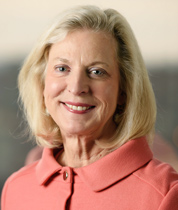Session Recap: Vertical Approach to Venture Investing

There is often confusion over what exactly is the vertical approach to venture investing. Constance Freedman, Founder and Managing Partner of Moderne Ventures, explains that vertical investing is simply another way to look at venture investing, by approaching it with a sector focus, or a vertical focus.
We often see vertical investing broken down in two three categories:
- Classified as an industry, which could include something like real estate tech, energy tech or bio tech.
- Classified as technology, such as Software as a Service, Artificial Intelligence, Cryptocurrency, or Internet of Things.
- Classified as geography, which includes emerging or underdeveloped regions or a specific city.
When you pick a vertical to invest in, you have to be totally dedicated only to that area. So if you’re going to be geographically focused, you can’t then also focus on another industry. Or if you’re going to be industry focused, you can’t also focus geographically.
There are many pros to sector investing. You can really become an expert, and we call that smart money or smart investing. You’re offering real expertise, not just capital, and that gives you the ability to attract proprietary deal flow and offers you recognition, as you bring a specialty. By proving your value, you can often command preferential terms. All of this leads to the ability to achieve outsized returns by affecting the value of the deals.
A potential con of sector investing is that it’s prone to cyclicality in particular industries, so you hedge for that by selecting a market size big enough to have a sector focus just on that one area. You want a big enough market to produce venture returns. Again, reputation is everything, so if you’re going to do this, what is the reputation of that fund in the sector? Do your diligence to make sure it can create those special terms.
If you’re thinking about being an investor in a vertically focused fund, ask yourself:
- Is the market size of the vertical big enough to invest?
- Are there favorable headwinds for that sector? Are there interested startups, corporates, and consumers? Is there an ecosystem to support it?
- How do I hedge against risk, such as cyclicality or regulatory?
- How can this be differentiated with the reputation to attract the best deals?
Freedman explains that Moderne chose key sectors because they are large markets and industries ripe for change, but with almost no investment in the sector. Also, look for an ecosystem to support innovation and growth. Moderne also invests in companies that are outside of the industry, but can be effective inside the industry. So use a broad outside-in strategy.
Think about it from the business challenges – like earnings, lead generation, marketing, financing, operations, and relationships. Find technology that is addressing these business needs and apply it across asset classes in and around their sectors.
Deal flow is paramount to success. Primary deal flow sources are from the industry network, partners and vendors, and from other VC funds. Getting good deals is more than half the battle. Moderne reviews 4,500 companies per year and selects only 15-25 with the greatest propensity to meet its goals of creating value and generate returns. Moderne actually only invests in about 4-8 of those companies annually.
In the Covid-19 era and through the lockdown, Freedman believes that innovation is going to separate winners and losers. Those who adopt innovation will come out ahead. It’s a different world, but we can still conduct good business, and a large amount of the economy is still able to function by adopting to virtual tools and measures. We have to shift what we can do, and pivot toward different kinds of business. If you’re willing to think big, embrace technology, and make changes, Freedman believes you will find opportunities.
Freedman shares some very good lessons that Moderne learned over the years:
- Sectors get hot and become noisy, remember that actual returns speak the loudest.
- Being operational is hard – it takes time, dedication, and truly amazing colleagues.
- Be true to your mission. Stay metrics based, avoid herd investing, and listen to consumers
 | Founder and CEO of Family Office Exchange, Sara is a recognized visionary in the private wealth community. While a trust officer at Harris Bank in Chicago in the late 1980s, Sara witnessed the emergence of family wealth management as an industry. Hundreds of U.S. families became centi-millionaires overnight through leveraged buyouts that spawned private financial offices commonly called family offices, to manage family assets and educate wealth owners. Sara was the first professional to recognize family offices as a complex market segment in wealth management. Areas of Expertise: Enterprise Families, Governance |